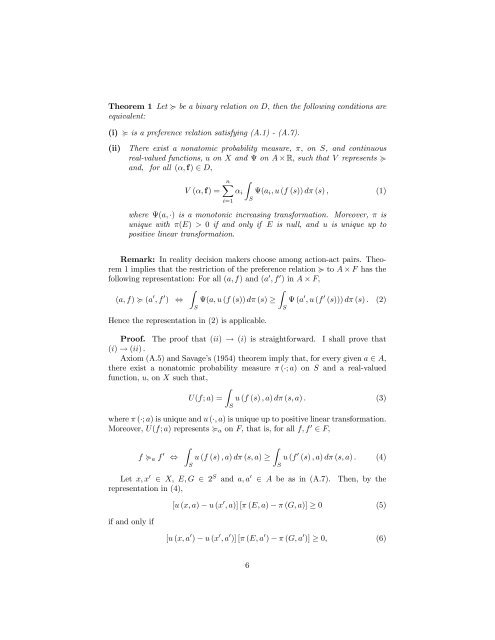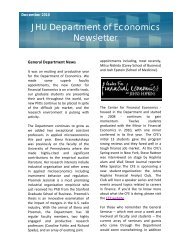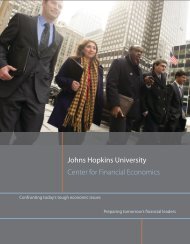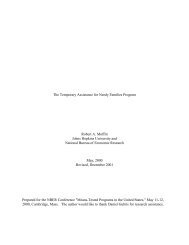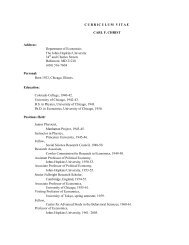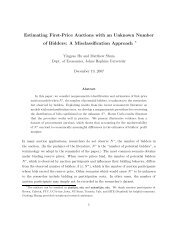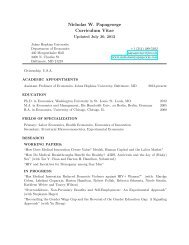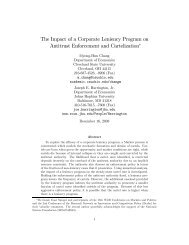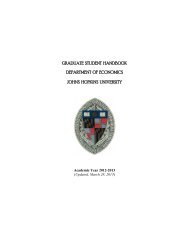Subjective Expected Utility Theory with Costly Actions - Economics ...
Subjective Expected Utility Theory with Costly Actions - Economics ...
Subjective Expected Utility Theory with Costly Actions - Economics ...
Create successful ePaper yourself
Turn your PDF publications into a flip-book with our unique Google optimized e-Paper software.
Theorem 1 Let < be a binary relation on D; then the following conditions are<br />
equivalent:<br />
(i) < is a preference relation satisfying (A.1) - (A.7).<br />
(ii) There exist a nonatomic probability measure, ¼; on S, and continuous<br />
real-valued functions, u on X and ª on A £ R; such that V represents <<br />
and, for all (®; f) 2 D;<br />
V (®; f) =<br />
nX<br />
i=1<br />
®i<br />
Z<br />
S<br />
ª(ai;u(f (s)) d¼ (s) ; (1)<br />
where ª(a; ¢) is a monotonic increasing transformation. Moreover, ¼ is<br />
unique <strong>with</strong> ¼(E) > 0 if and only if E is null, and u is unique up to<br />
positive linear transformation.<br />
Remark: In reality decision makers choose among action-act pairs. Theorem<br />
1 implies that the restriction of the preference relation < to A £ F has the<br />
following representation: For all (a; f) and (a 0 ;f 0 ) in A £ F;<br />
(a; f) < (a 0 ;f 0 ) ,<br />
Z<br />
S<br />
Z<br />
ª(a; u (f (s)) d¼ (s) ¸<br />
Hence the representation in (2) is applicable.<br />
ª(a<br />
S<br />
0 ;u(f 0 (s))) d¼ (s) : (2)<br />
Proof.<br />
(i) ! (ii) :<br />
The proof that (ii) ! (i) is straightforward. I shall prove that<br />
Axiom (A.5) and Savage’s (1954) theorem imply that, for every given a 2 A;<br />
there exist a nonatomic probability measure ¼ (¢; a) on S and a real-valued<br />
function, u; on X such that,<br />
Z<br />
U(f; a) = u (f (s) ;a) d¼ (s; a) : (3)<br />
S<br />
where ¼ (¢; a) is unique and u (¢;a) is unique up to positive linear transformation.<br />
Moreover, U(f; a) represents


